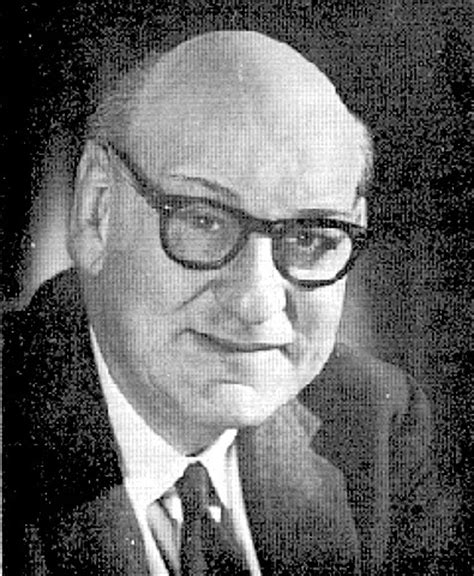A Quote by Warren Buffett
The optimum portfolio depends on the various expectations of choices available and the degree of variance in performance which is tolerable. The greater the number of selections, the less will be the average year-to-year variation in actual versus expected results. Also, the lower will be the expected results, assuming different choices have different expectations of performance.
Related Quotes
It is obvious that the performance of a stock last year or last month is no reason, per se, to either own it or to not own it now. It is obvious that an inability to "get even" in a security that has declined is of no importance. It is obvious that the inner warm glow that results from having held a winner last year is of no importance in making a decision as to whether it belongs in an optimum portfolio this year.
There is one thing of which I can assure you. If good performance of the fund is even a minor objective, any portfolio encompassing one hundred stocks (whether the manager is handling one thousand dollars or one billion dollars) is not being operated logically. The addition of the one hundredth stock simply can't reduce the potential variance in portfolio performance sufficiently to compensate for the negative effect its inclusion has on the overall portfolio expectation.
The way you activate the seeds of your creation is by making choices about the results you want to create. When you make a choice, you mobilize vast human energies and resources which otherwise go untapped. All too often people fail to focus their choices upon results and therefore their choices are ineffective. If you limit your choices only to what seems possible of reasonable, you disconnect yourself from what you truly want, and all that is left is a compromise.
We all think we’re going to be great and we feel a little bit robbed when our expectations aren’t met. But sometimes our expectations sell us short. Sometimes the expected simply pales in comparison to the unexpected. You got to wonder why we cling to our expectations, because the expected is just what keeps us steady. Standing. Still. The expected's just the beginning, the unexpected is what changes our lives.
We are about to enter a new era in which, each year, less net energy will be available to humankind, regardless of our efforts or choices. The only significant choice we will have will be how we adjust to this new regime. That choice - not whether, but how to reduce energy usage and make a transition to renewable alternatives - will have profound ethical and political ramifications.
Most problems, decisions, and performances are multidimensional, but somehow the results have to be reduced to a few key indicators which are to be institutionally rewarded or penalized... The need to reduce the indicators to a manageable few is based not only on the need to conserve the time (and sanity) of those who assign rewards and penalties, but also to provide those subject to these incentives with some objective indication of what their performance is expected to be and how it will be judged... key indicators can never tell the whole story.































